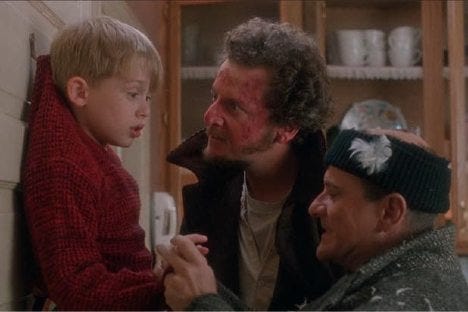What if Diversity, Equity, and Inclusion is Making Us More Biased?
We were already pretty biased to begin with
Let’s start by recognizing how ridiculously biased all of us are. It’s our stupid brains’ fault; we all make inferences and assumptions based on what we think we know. If I’m being honest, when I see a big, muscly dude, I don’t think “heart surgeon”. When I play pickup soccer, I listen for who’s not speaking English and then try to get on that team. This isn’t good or fair, but our brains are wired to tie Thing A to Thing B. This happened when I was a kid: I viscerally hated Kevin Arnold from The Wonder Years and didn’t know why, until I realized that Kevin Arnold’s adult voice is one of the burglars from Home Alone.
One point on which Ibram X. Kendi and I agree is that bias is all around us. None of us are completely aware of our biases, and can’t be even if we try. Of course, I think Kendi’s view of how bias works is simplistic, and I have gigantic problems with his method for measuring it, but we agree that it’s always there, a low (or sometimes not-low) static distorting everything. You can’t eliminate it; you can only work to recognize it within yourself and try to course-correct.
Over the years, I’ve come to think that diversity, equity, and inclusion programs — or “affirmative action”, to use a slightly-passé phrase — are a disastrous policy. I’m not against them in every case, I think there are a limited set of circumstances in which lightly-applied policies make sense, but I think that most of the time, they’re divisive and unfair. I also know that they’re extremely unpopular — they poll worse than “defund the police” and get hammered at the ballot box even in diverse, deep-blue states — and I think that important parts of the Democratic agenda like social spending and election reform are being sacrificed to policies that a majority of Americans of all races don’t want.





